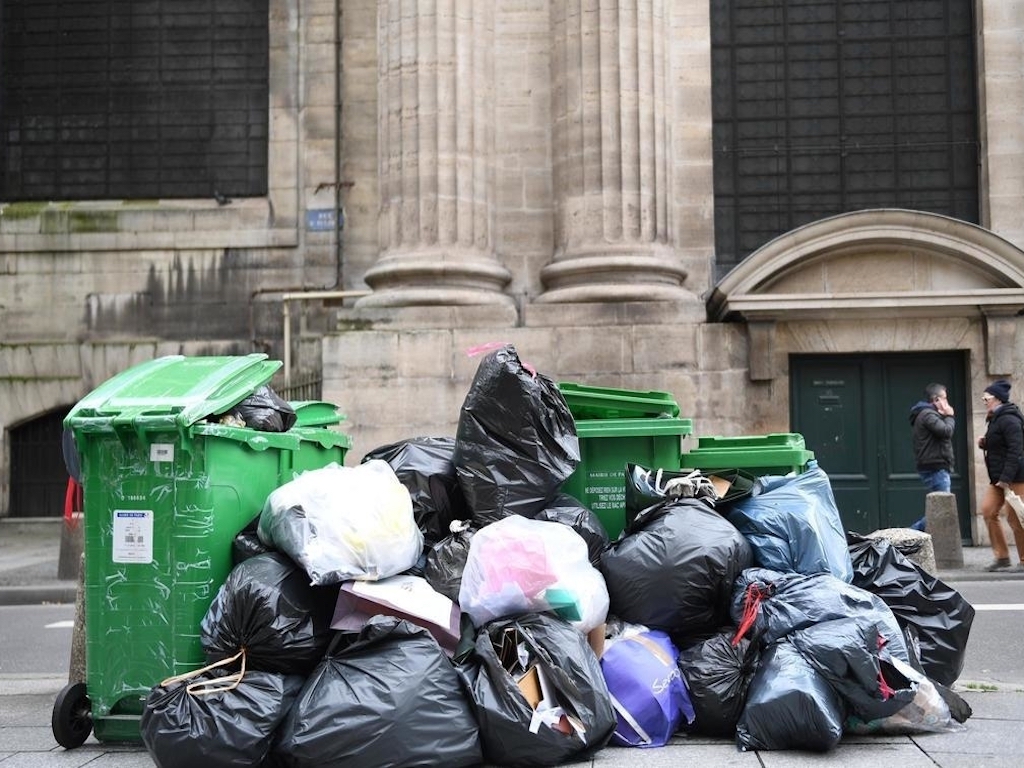3 Mins Read
France has just banned companies from destroying leftover stock and returned items. Under the anti-waste law, which was recently passed by parliament in late January, luxury goods and designer brands, as well as those selling electrical items, hygiene and cosmetics products, must reuse, redistribute or recycle instead of throwing them away. The wide-ranging 130-article bill, which the French government claims is a first for the world, serves as an example for other states who urgently need to join the fight against the escalating global waste crisis.
In a new anti-waste bill adopted after the French Assemblée Nationale and the upper house, the Sénat, reached an agreement, France will be banning companies from destroying unsold or returned goods. The law, which contains 130 articles in total, will forbid luxury goods and designer fashion labels from burning or throwing away stock, a practice that high-end brands have previously engaged in to retain consumer exclusivity. It will also cover electrical items, hygiene products, cosmetics and makeup, which companies will now have to reuse, redistribute or recycle.
The policy is an effective extension of France’s existing law banning supermarkets from throwing away unsold food items and forcing them to donate to charities, and the new articles will also phase out the use of paper receipts, which are generally not recyclable, and will incentivise individual pharmacies to sell some types of medication in individual doses rather than standardised packages.
Online firms will not be exempt from the anti-waste and circular economy bill either. E-commerce giant Amazon, for instance, which recently delivered over 1 billion parcels over the Christmas holiday season, will have to donate unsold and returned non-food stock as well, as long as they do not pose a health or safety risk. This comes after junior environment minister Brune Poirson pledged to bring about waste-fighting legislation after a French documentary showcased containers of products from Amazon’s warehouse sent to be destroyed.
In order to ramp up corporate responsibility over waste, under the “polluter pays” clause of the bill, companies will have to finance the destruction of waste that they create. This will effectively disincentivise businesses from overproduction that leads to deadstock, reduce orders from suppliers to minimise waste, and pressure companies to keep their disposed of items to a minimum. Under this article, even tobacco manufacturers will have to pay for the disposal of cigarette butts, and it will cover companies that make toys, sporting goods, gardening products and building materials from 2021 onwards.
This major piece of legislation will work to combat the wasteful practices that are not only reported across the fashion industry and especially amongst luxury players but across all sectors of the economy in the country.
However, waste is not a problem confined to France alone – it is a global problem prevalent in every sector, in every country. In 2018, the World Bank reported that over 2 billion metric tonnes of municipal solid waste is produced annually worldwide, and this figure is set to grow to over 3.4 billion by 2050. With only around 13.5% of the total global waste being collected and recycled, our landfills are quickly overflowing and plastic waste will outweigh the number of fish in our oceans in the coming years.
Furthermore, countries that are typically responsible for the largest amounts of waste in the Western world are often directed to developing countries, most of which are located right here in Asia. Since China enacted a ban on waste imports in late 2018, millions of tonnes of shipments have been redirected to destinations in Southeast Asia, inundating the processing capacity across the region, from the Philippines to Vietnam.
Not to mention, it has caused wide-ranging social and health impacts, such as Indonesian communities who have been left with little choice but to use the mountains of toxic plastic imports to fuel manufacturing furnaces.
France’s landmark anti-waste and circular economy law is a good example to other countries, particularly in advanced economies, where governments have shied away from pressuring all industries and businesses to rethink their role in global sustainability.
Lead image courtesy of AFP.




